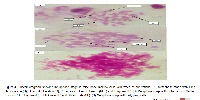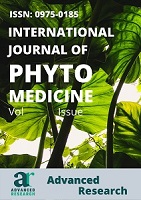Molecular genetic evaluation of Cichorium endivia L. as an anticancer agent against colorectal cancer
Keywords:
Colorectal cancer, DMH, FU, Cichorium endivia L., PCR, DDAbstract
Medicinal plants confer protective effects against a wide range of cancers including colon cancer. Cichorium endivia L. has many biological activities and functions, such as anti-inflammation and hepatoprotective effects. This activity is mainly due to its high levels of antioxidant compounds. The effect of cichorium extract and fluorouracil (5-FU) against colorectal cancer (CRC) induced by 1, 2- Dimethyl hydrazine (DMH) was examined in male albino mice. Where, different doses of cichorium extract (200, 400 and 600 mg/kg body weight) were investigated to determine the significant effective dose against colorectal cancer using differential display-PCR (DD-PCR), DNA sequencing, histopathological and cytological techniques. The results showed that the cichorium extract dose 200 mg/kg body weight was the best one compared to the others (400 and 600 mg/kg body weight). This finding could be a powerful therapeutic against colorectal cancer.
References
. Arulraj P, Gopal V, Jeyabalan G.
Digestive Disorder - Colon Cancer -
Emphasising Celecoxib. Int. J. Pharm.
Sci. Rev. Res. , (2015);34, 178-85.
. Perše M, Cerar A. The
dimethylhydrazine induced colorectal
tumours in rat - experimental colorectal
carcinogenesis. Radiol Oncol,
(2005);39, 61-70.
. Longley DB, Harkin DP, Johnston PG.
-Fluorouracil: mechanisms of action
and clinical strategies. Nat Rev Cancer,
(2003);3, 330-8.
. Wang FX, Deng AJ, Li M. (3S)-1,2,3,4-
Tetrahydro-beta-carboline-3-carboxylic
acid from Cichorium endivia. L induces
apoptosis of human colorectal cancer
HCT-8 cells. Molecules, (2012);18,
-29.
. Alshehri A, Hafez E. Molecular and
biochemical evaluation of
antiproliferative effect of (chicorium
endivia, L.) phenolic extracts on breast
cancer cell line: MCF7. E3. Journal of
Biotechnology and Pharmaceutical
Research, (2012);3, 74-82.
. Pan B, Zheng S, Liu C. Suppression of
IGHG1 gene expression by siRNA
leads to growth inhibition and apoptosis
induction in human prostate cancer
cell. Mol Biol Rep, (2013);40, 27-33.
. Sumiyoshi H, Wargovich MJ.
Chemoprevention of 1,2-
dimethylhydrazine-induced colon
cancer in mice by naturally occurring
organosulfur compounds. Cancer Res,
(1990);50, 5084-7.
. Liang P, Pardee AB. Differential display
of eukaryotic messenger RNA by
means of the polymerase chain
reaction. Science, (1992);257, 967-71.
. Seufi MA, Galal FH, Hafez EE.
Characterization of a Schistocerca
gregaria cDNA Encoding a Novel
Member of Mobile Phone RadiationInduced Polypeptide Related to
Chitinase Polypeptide Family. Journal
of Applied Sciences Research,
(2007);3, 733-740.
. Liu D, Yin B, Wang Q. Cytoplasmic
poly(A) binding protein 4 is highly
expressed in human colorectal cancer
and correlates with better prognosis. J
Genet Genomics, (2012)39, 369-74.
. Nady M E, Mansour A M, Hafez E E,
Omran G, Hamad G M, Harraz S E,
Allam S N, Ahamad A A. Chicory
abrogates oxidative stress,
inflammation and caspase-dependent
apoptosis in acute hepatic injury model
induced by acetaminophen in rats.
International Journal of Phytomedicine
(2016).
. Pan H, Yan BS, Rojas M. Ipr1 gene
mediates innate immunity to
tuberculosis. Nature, (2005);434, 767-
. Matsuoka H, Obama H, Kelly ML.
Biphasic functions of the kinasedefective Ephb6 receptor in cell
adhesion and migration. J Biol Chem,
(2005);280, 29355-63.
. Kiyokawa E, Takai S, Tanaka M.
Overexpression of ERK, an EPH family
receptor protein tyrosine kinase, in
various human tumors. Cancer Res,
(1994)54, 3645-50.
. Young SZ, Bordey A. GABA's control of
stem and cancer cell proliferation in
adult neural and peripheral niches.
Physiology (Bethesda), (2009);24, 171-
. Liu J, Zheng Q, Deng Y. A seven-helix
coiled coil. Proceedings of the National
Academy of Sciences, (2006);103,
-62.
. Korzeniewski N, Hohenfellner M,
Duensing S. CAND1 promotes PLK4-
mediated centriole overduplication and
is frequently disrupted in prostate
cancer. Neoplasia, (2012)14, 799-806.
. Alshehri A . Molecular and Biochemical
Evaluation of Anti-Proliferative Effect of
(Cichorium endivia L.) Phenolic
Extraction Cancer Cell Line HCT-116.
Academic Journal of Cancer Research,
(2012);5, 53-60.
. Hafez EE, Badr EA, Mabrouk YM.
Expression of tumor-markers and
cytokines in response to cichorium
endivia l. In cancerous mice. Int J
LifeSc Bt & Pharm Res, (2014);3, 33-



